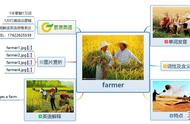01
要旨
菊花在历代文人诗作的烘托下有了高洁、不羁和卓然独立的意象。菊花在中国文化中从来不只是一种花,而是一种精神,一种优秀的人文品质。

Among literary men and poets throughout the ages, the chrysanthemum has been featured as a symbol of the aspiration for uprightness and freedom from worldly considerations.In Chinese culture, the chrysanthemum has always been more than just a flower; it has been a kind of literary device symbolizing spirituality and excellence.
02
故事

中国是花的国度,也是诗的国度。以花的形象入诗,花往往被赋予某种意向而被后人反复领悟。菊花便是如此。诗人择菊花入诗,往往根据菊花某一方面的特征,结合诗人当时的情感,遂生成一二佳作。菊花能傲霜,风流标格与傲雪的寒梅等同,故能招来诗词家的万千吟诵。
China is a nation of flowers. It is also a nation of poetry. In poems, images of flowers are understood by later generations to convey certain symbolic meanings. Chrysanthemums were employed by poets often based on the qualities peculiar to those flowers, and expressed the poets’ feelings at the time, producing several fine turns of phrase. The chrysanthemum is considered the equal of the plum blossom in its ability to withstand frost and wind, and is cited by poets in innumerable verses.

爱菊的人士不少,东晋时期的陶渊明就是其中之一。
Chrysanthemums have had many admirers, and Tao Yuanming of the Eastern Jin Dynasty (317-420) was one of them.
陶渊明其人不亲权贵,目睹官场的黑暗后,甩袖撂下一句硬话:“我不为五斗米折腰”。这“五斗米”说的就是古代官员的俸禄。
Tao Yuanming was the sort of person who had no affinity for authority and power;after personally observing the dark side of officialdom, he abruptly resigned his official post, with the fierce words “I will not grovel for a mere five piculs of rice.” Five piculs of rice was an official’s monthly salary in those days.














